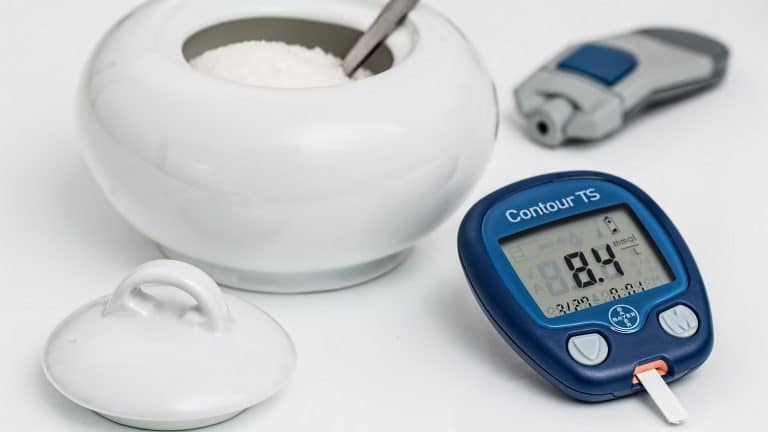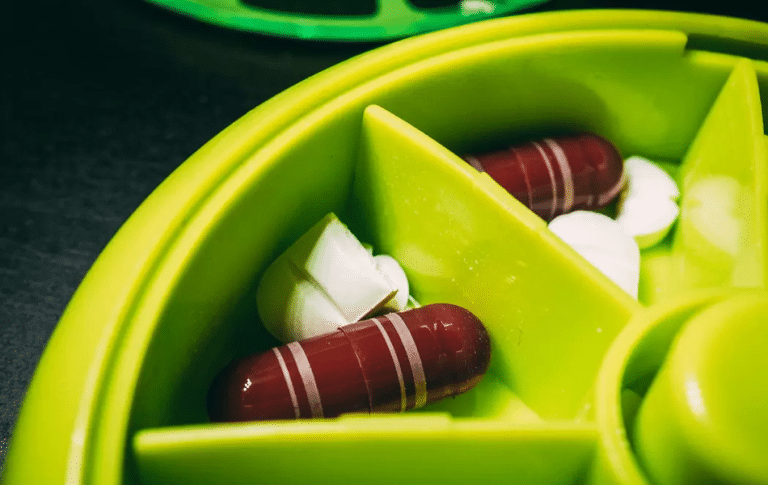How to Get Your Taste Back: A Guide to Regaining Lost Flavor

Losing your sense of taste can be incredibly frustrating. Not being able to enjoy the food you love can make everyday life feel duller. But what causes you to lose taste, and how can you regain it?
Here’s all you need to know!
How to Get Your Taste Back
There are a few things you can do to gradually regain your sense of taste:
- Eat foods with strong flavors — Spicy, sour, bitter, and sweet foods can help stimulate your taste buds.
- Quit smoking — Smoking is a leading cause of loss of taste.
- See your doctor — If you’ve tried all of the above and you’re still not experiencing any improvement, see a doctor. There could be an underlying medical condition causing your loss of taste.
Loss of Taste — The Main Causes
A few different things can cause the loss of taste and smell.
The most common of them include:
- Infections
- Allergies
- Medications
- Cancer treatment
- Nutritional deficiencies
- Dental problems
- Aging
Infections
Cold, flu, and other respiratory infections are the most common cause of a loss of taste.
Infections can cause inflammation in the nose, which can lead to a loss of smell and congestion, which can make it difficult to taste food.
The best way to get your taste back from a cold is to wait it out. Once you recover, your sense of smell will return (likely within one to two weeks).
Having no smell or taste is also one of the symptoms of COVID-19. Based on one study, 7% of patients lose their sense of taste, 4.5% lose the sense of smell, and 4% lose both as a result of COVID infection.
What exactly COVID-19 does to your taste and smell is still unknown. What we do know is that it doesn’t appear to have an impact on the olfactory sensory nerves that transmit smell and taste information or taste buds.
Most people recover from the COVID loss of taste after four weeks, but there are cases where recovery takes longer — about two to six months.
To speed up your recovery, you can try the following home remedies:
- Castor oil — Apply two drops of warm castor oil to each nostril twice a day.
- Lemon and honey — Drink water mixed with lemon and honey.
- Garlic — Not only can garlic supplements help you fight the flu, but garlic cloves mixed with water can also restore your lost sense of taste. Boil some water, add 2–3 chopped garlic pods, wait for the mixture to cool down, strain it, and drink up.
- Ginger — Ginger has a strong smell that can help you regain your taste. You can eat it raw or make ginger tea. To make ginger tea, add a teaspoon of ginger (grated) to a cup of boiling water, let it rest for five minutes, and then drink it.
- Peppermint leaves — Take a cup of water and add ten peppermint leaves. Boil the ingredients and strain the mixture once it cools down. Then, you can add some honey to it, and it’ll be ready to go!
Allergies
Can allergies cause loss of taste? Yes, allergies can cause congestion and inflammation. If you have seasonal allergies, you may notice that your sense of smell and taste deteriorates during certain times of the year (e.g., spring).
There are a few ways to help ease allergy symptoms:
- Medications (e.g., antihistamines and decongestants)
- Nasal sprays (e.g., Beconase, Zetonna, Veramyst, etc.)
- Nasal irrigation
Medications
Medications that tend to cause dry mouth can also interfere with your sense of taste.
They include:
- Antibiotics
- Psychotropic medications
- Blood pressure medications
- Bladder medications
- Antihistamines
- Cholesterol-lowering medications
If the medication-induced changes to your taste occur, you can try to keep your mouth moist to reduce the symptoms. Don’t be tempted to stop taking the medications until you’ve discussed it with your doctor (aka until your doctor has prescribed an alternative medication).
Cancer Treatment
Dysgeusia is a condition in which everything smells and tastes bad to you. People with this condition typically report that all food tastes sour, sweet, bitter, or metallic to them. This is a common side effect of cancer treatment (chemotherapy and radiation therapy).
The good news is that dysgeusia is usually temporary. Once you’re done with the treatment, your sense of taste should return within a few weeks or months.
To get rid of the metallic taste in your mouth after chemo, you can:
- Eat cold and frozen food.
- Add tart ingredients to your food (e.g., pickles, lemon juice, or vinegar).
- Use spices and sweeteners.
- Swap your metal utensils with wooden or plastic ones.
Nutritional Deficiencies
Certain vitamin and mineral deficiencies (e.g., zinc and vitamin B12 deficiency) can greatly affect our taste and smell.
So, how to get your taste back? Start by eating food that contains zinc (oysters, beef, and crab) or take zinc supplements. Your daily dose of zinc should amount to 8 mg for women and 11 mg for men.
If your altered taste is a result of vitamin B12 deficiency, turn to food sources rich in that vitamin (e.g., milk, eggs, fish, chicken, meat).
Dental Problems
Dental problems (e.g., gum disease, wisdom tooth extraction, infection, and inadequate oral hygiene) can also cause a weird taste in your mouth. Once you treat the problem, your taste should return to normal.
Aging
As you age, your sense of smell and taste tends to decline. This is due to a natural decrease in the number of smell and taste receptors.
Normally, our taste bud cells regenerate every one or two weeks. However, after we turn 50, these cells gradually lose their sensitivity and ability to renew.
Conclusion
As you can see, there are many reasons why you might be losing taste and smell. But don’t worry — in most cases, it’s only temporary.
To get your taste back, drink plenty of fluids, eat zinc-rich foods, and try some of the home remedies we mentioned. And if the problem persists, make sure to visit a doctor.
FAQs
How long does it take to get your taste back after Covid?
Many people report regaining their senses four weeks after recovery. However, some people may experience a longer timeline — from two to six months.
Does zinc help with loss of taste?
Yes, zinc can help with the loss of taste. Eating zinc-rich foods or taking zinc supplements may help improve the sense of smell and taste.
Can the flu cause loss of taste?
Yes, the flu can cause loss of taste because it causes congestion and inflammation. These can block the nose and mouth, making it difficult to smell and taste.






